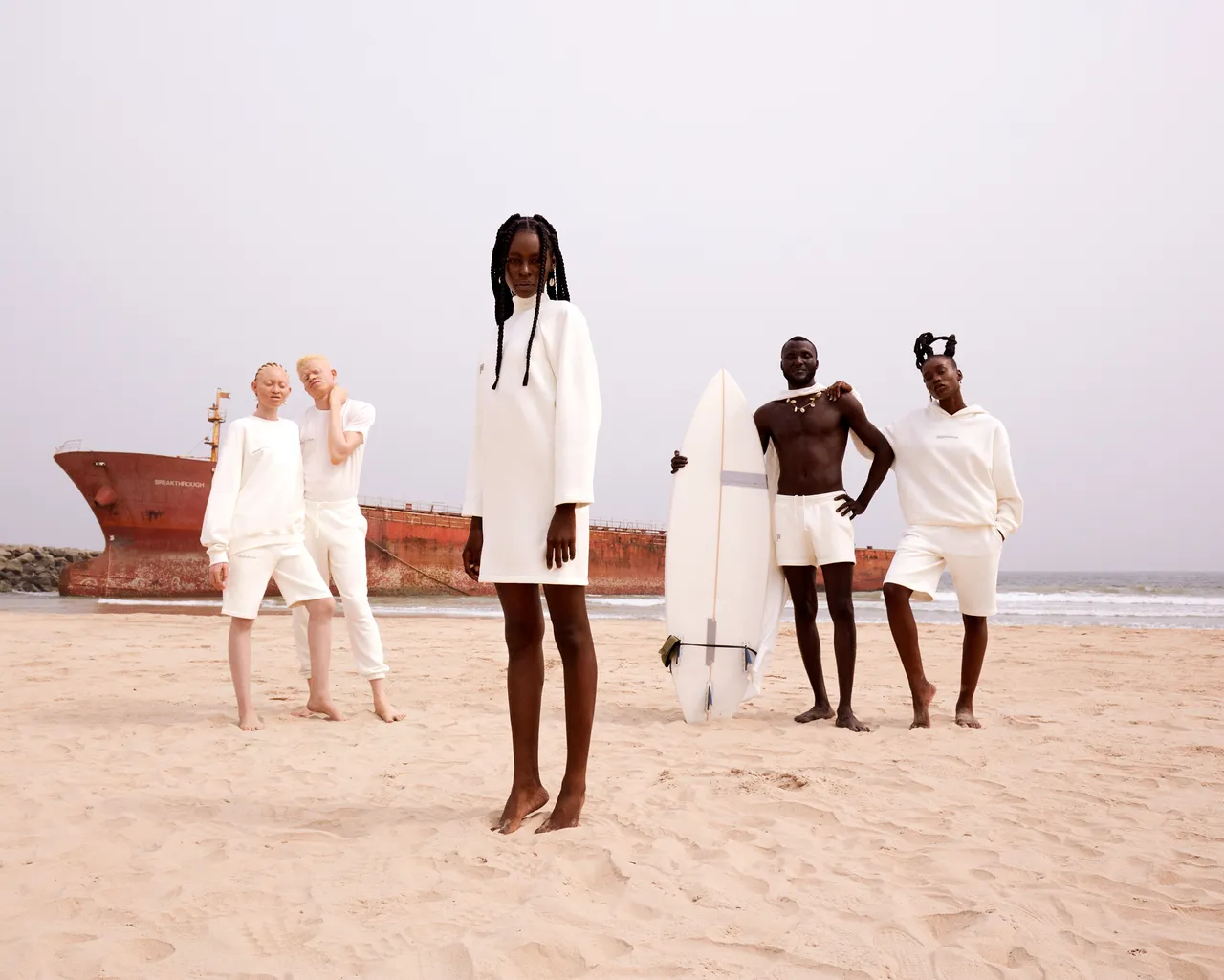The fashion industry is complicated, to say the least. But these trustworthy fashion labels are proving progress, not perfection, is critical in creating more meaningful and lasting change.
Fashion is a huge industry — the entire global apparel market is worth $1.5 trillion. And within that industry, there are many, many different types of brands, some of which are certainly significantly more trustworthy than others. With their cheap prices, murky supply chains, and incredibly fast turnover, fast fashion brands undeniably fall at the least trustworthy end of the spectrum. But what constitutes a trustworthy fashion label? Can any be trusted?
What makes a fashion label trustworthy?
When it comes to trusting a fashion label, the amount of transparency they offer their customers is crucial. They must be open about which materials they use, where they are sourced from, and how they are sourced, for example. They should also clearly communicate details about the workers who make their clothes, including where their factories are located and whether they pay a living wage.
It’s easy for brands to dupe customers into thinking they’re more trustworthy than they actually are by making confusing statements with vague language. For example, by saying that a garment is made with “more sustainable materials,” without including specific details about how much more, or what other materials are being used, too.
One way to ensure a label isn’t trying to pull the wool over your eyes is to look for these crucial details, but also to look for certifications to back up those details. If a label is B Corp certified, for example, this means they have had to verify that they meet high standards of accountability and transparency. Other certifications include Fair Trade, People for the Ethical Treatment of Animals (PETA), and the Global Organic Textile Standard (GOTS).
Trustworthy, sustainable fashion labels
If you want to buy your clothing from trustworthy labels, we have gathered a few of our favorites below. Each prides themselves on being as transparent, sustainable, and ethical as possible.

1. Stella McCartney
British label Stella McCartney has always been clear about its material usage. In fact, since it was founded in 2001, it has never used leather, feathers, nor fur, and the label has even worked with PETA to raise awareness of cruelty in the leather industry. Stella McCartney also releases annual impact reports complete with data, performance highlights, and progress, to show how it is striving to operate as sustainably and ethically as possible.
“It’s part of my everyday life to have a level of respect for Mother Earth and her creatures and I have always strived to have that be core to what we do here at Stella,” founder and creative director Stella McCartney wrote in the label’s 2023 report, before adding that it will “continue to push ever farther – and faster – forward, within the fashion industry and beyond.” She added: “We will always give people information and offer them an alternative way.”
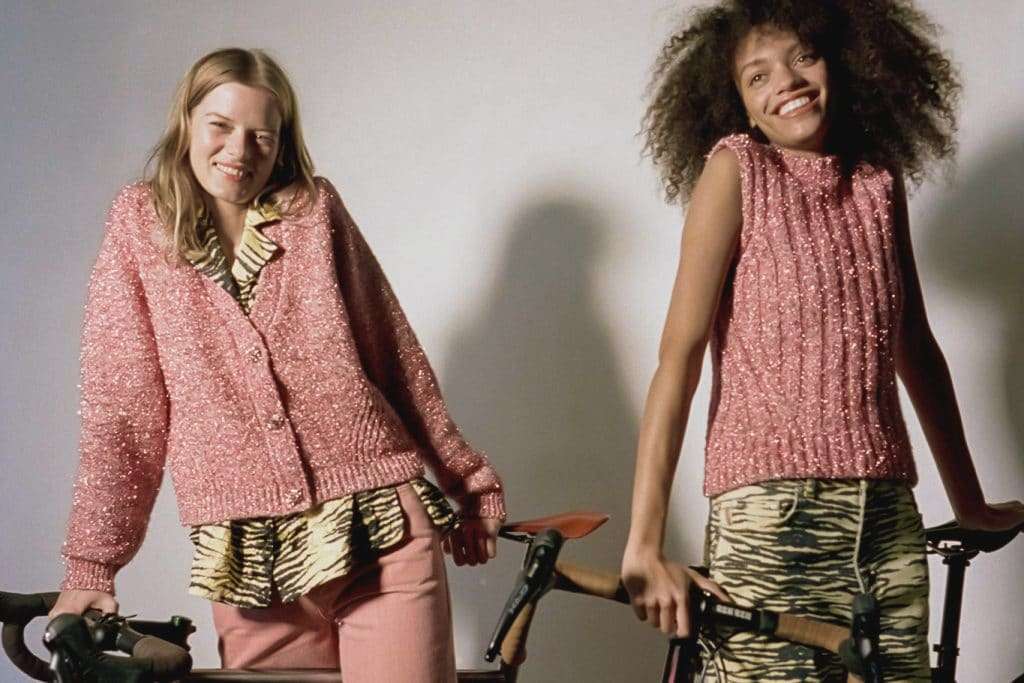
2. Ganni
Danish label Ganni does everything it can to operate as a responsible, transparent, and trustworthy label, but it is open about the fact that there is only so much a fashion label can do for the planet.
“We don’t identify as a sustainable brand, because at its core fashion thrives on newness and consumption, which is a major contradiction to the concept of sustainability,” it notes. “That’s the honest truth. Instead, we’re focused on becoming the most responsible version of ourselves.”
Ganni releases regular responsibility reports, in which it outlines its goals (across “people, planet, products, and prosperity”) and its progress towards them. It is also a certified B Corp, and has been since 2022. “B Corp offers a tangible and transparent framework for keeping businesses accountable and setting industry benchmarks. Becoming certified is a testament to all the work our team continuously puts into this journey of becoming the most responsible version of ourselves,” said Ganni’s founder Nicolaj Reffstrup in a statement.
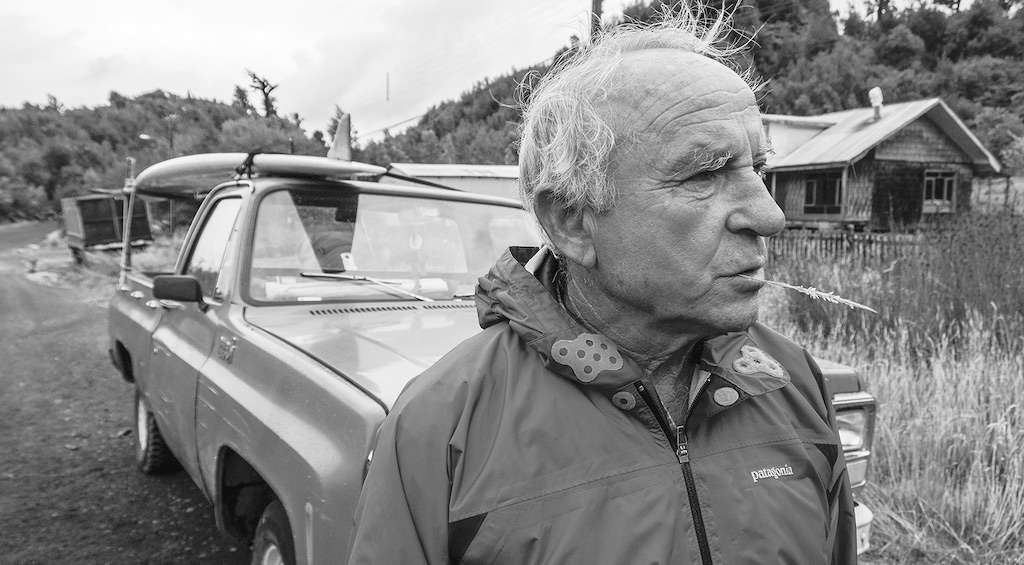
3. Patagonia
In 2022, Patagonia made headlines when its founder Yvon Chouinard gave away the entire company in a bid to tackle the climate crisis. “As of now, Earth is our only shareholder,” the company announced at the time. “All profits, in perpetuity, will go to our mission to ‘save our home planet.’”
Since then, the brand has remained committed to environmental initiatives, including a campaign to end bottom trawling on the ocean floor. It is also transparent about materials on its website and offers an extensive explanation for each of its commonly used fabrics, including polyester, and its continuous search for more responsible alternatives (like biobased polyester). Patagonia has also been a certified B Corp since 2011.
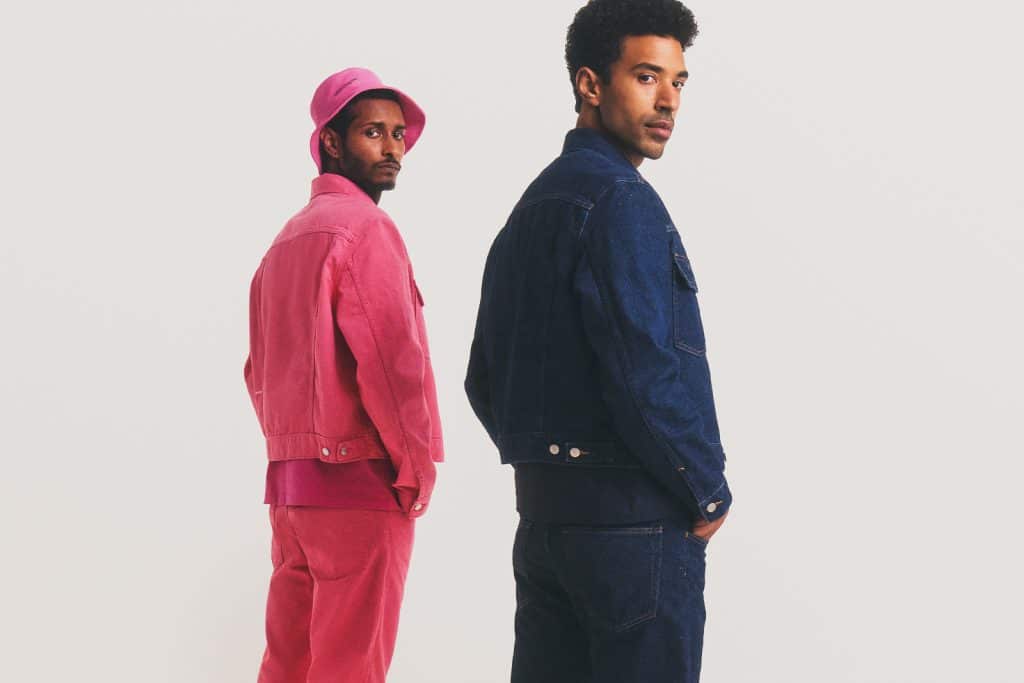
4. Pangaia
Another certified B Corp, Pangaia describes itself as a “global collective of one heart and many hands,” with a team comprising of scientists, technologists, and designers. Everything it creates is designed with the environment in mind, and this is demonstrated in its regular impact reports.
The label is also committed to improving the conditions of garment workers, and in 2021, it conducted a social materiality assessment to determine and understand which areas of its value chain needed the most improvement. And in 2023, it partnered with the Fair Wear Foundation to support workers “in realizing their right to safe, dignified, and fairly paid employment.”
Pangaia is also committed to the Transparency Pledge, a voluntary pledge made by fashion brands to disclose supply chain locations and information.
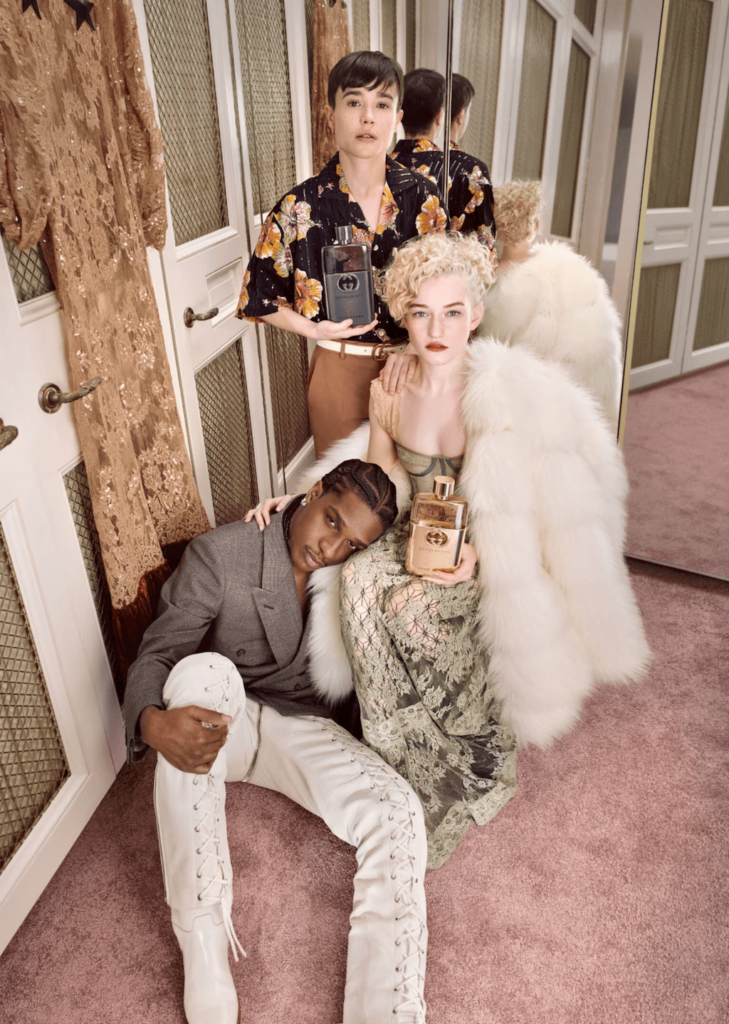
5. Gucci
Italian luxury label Gucci has unveiled several new sustainability-focused initiatives recently, including a Circular Hub, which aims to promote circular fashion across Italy and transform its own supply chain. The goal, according to the label, is also to help other companies follow its lead by making all of its processes accessible.
“The recovery, recycling, and reuse processes that will be integrated into Gucci’s supply chain in the initial phase, as well as the associated patents, techniques, and know-how, will in fact be made available to other companies,” a Gucci spokesperson told Vogue Business. “The aim is to involve an increasing number of suppliers and industrial partners in an open innovation context that extends beyond the luxury and fashion supply chains while working towards enhancing and valorizing materials recovery, recycling, and reuse.”
Gucci’s efforts towards improving its impact and openness have paid off. In 2023, it was one of the highest-scoring brands on Fashion Revolution’s Fashion Transparency Index, reaching a transparency score of 80 percent.

6. Reformation
One of the first labels to bring upcycled materials front and center, Reformation continues to be a global leader in ethical manufacturing without compromising on style. From denim to resort wear and more, Reformation has become synonymous with sustainable fashion.
It prioritizes the use of sustainable materials and environmentally responsible manufacturing processes. The label actively reduces its carbon footprint and water usage, making it a leader in the fashion industry’s shift toward sustainability. “Sustainability has been so integral to our DNA from the beginning,” Kathleen Talbot, chief sustainability officer and vice president of operations at Reformation, told WWD last year. “We’re not trying to create our own measuring stick,” Talbot said. The label works with verified science-based targets via the Carbon Disclosure Project, among other organizations to measure its progress.
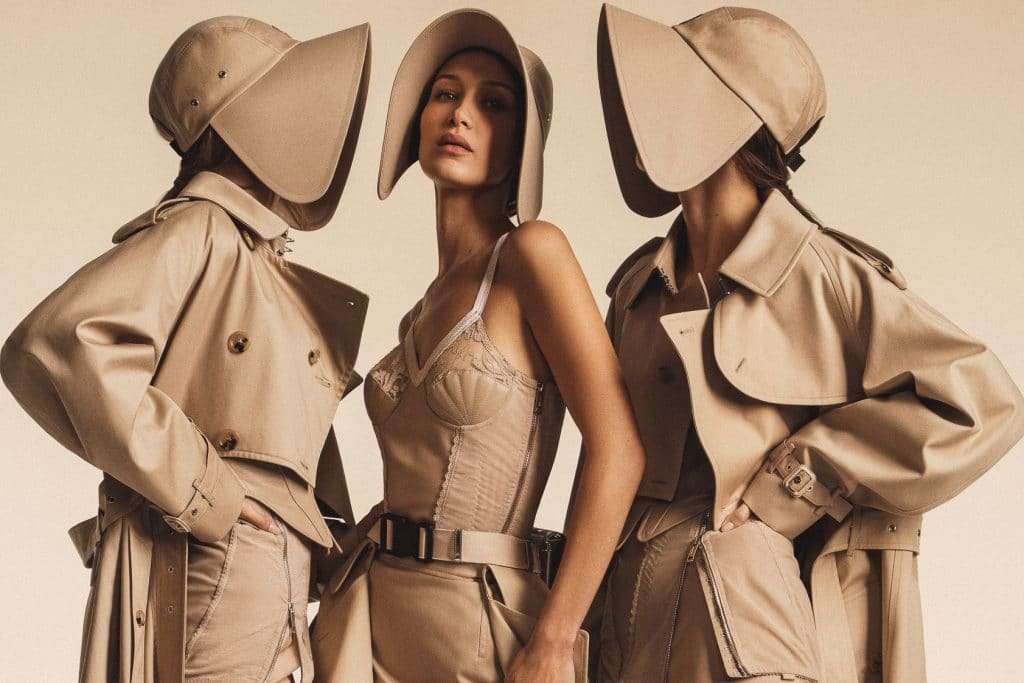
7. Burberry
Burberry has topped the Dow Jones Sustainability Index in recent years for efforts like its climate positive targets for 2040. The British label has increased its use of sustainable and upcycled materials as well as increased its repair services to help its customers keep items in use for longer. The luxury label also partnered with secondhand platform My Wardrobe HQ in 2021 as part of its circularity commitments. Last year, it partnered with Able Made on an upcycled collection made with Burberry deadstock.
Much of its circularity efforts stem from a $400 million ESG loan secured in 2022 aimed at achieving its climate targets by 2040. “Linking sources of funding to sustainable initiatives will help drive this, not only in the luxury industry but also across the wider economy,” Julie Brown, chief operating and financial officer at Burberry, said in a statement.
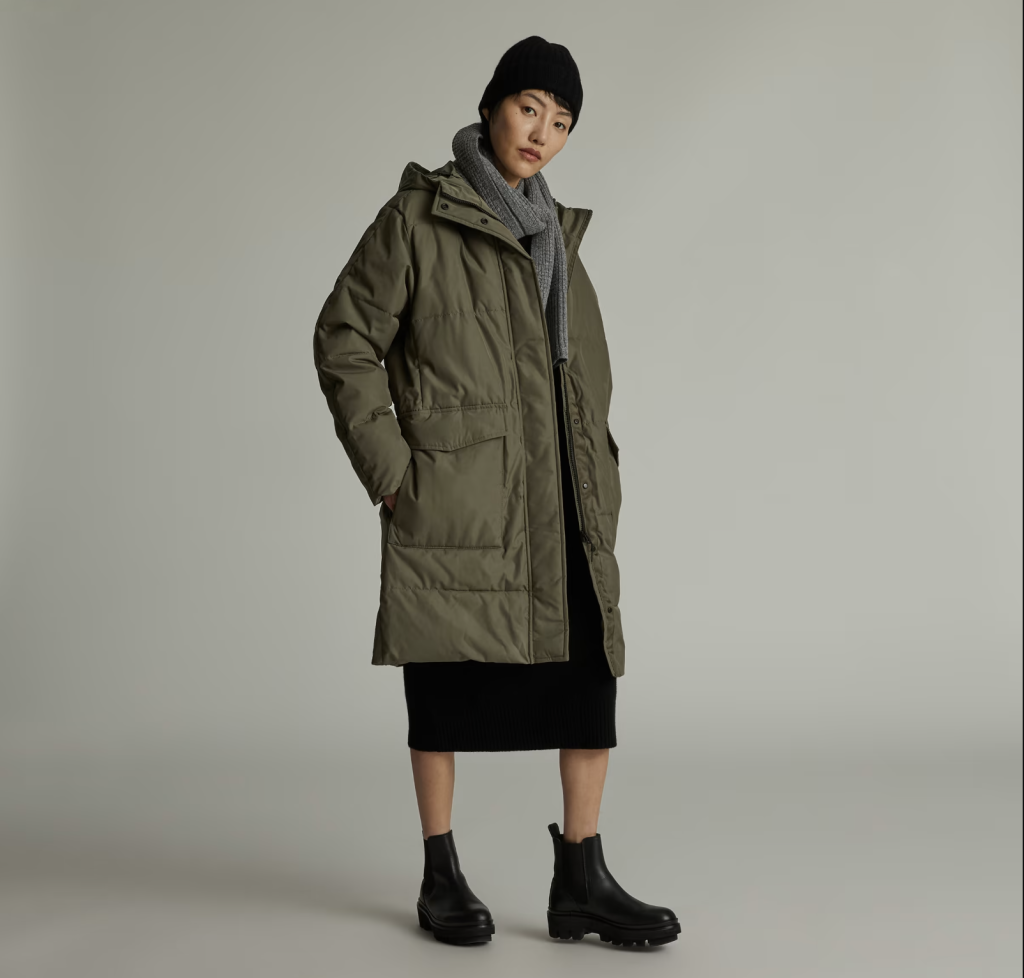
8. Everlane
Everlane champions sustainability by embracing transparent and ethical manufacturing practices. It meticulously selects environmentally friendly materials, including organic cotton and recycled fabrics, to craft its clothing. Everlane’s commitment to reducing waste is evident in its minimalist designs and durable products, encouraging a culture of long-lasting wear rather than fast fashion. The label also ensures fair wages and safe working conditions in its factories, demonstrating a holistic approach to sustainability that encompasses both environmental and social aspects. By providing consumers with detailed information about the production process, Everlane fosters awareness and responsibility in fashion consumption.
Its radical transparency commitment hasn’t been easy, but, according to Andrea O’Donnell, who took over the CEO role in 2022, “If you want to be a progressive brand, and you want to be modern and relevant, you have to take climate change really seriously,” she said in an interview with Glossy.
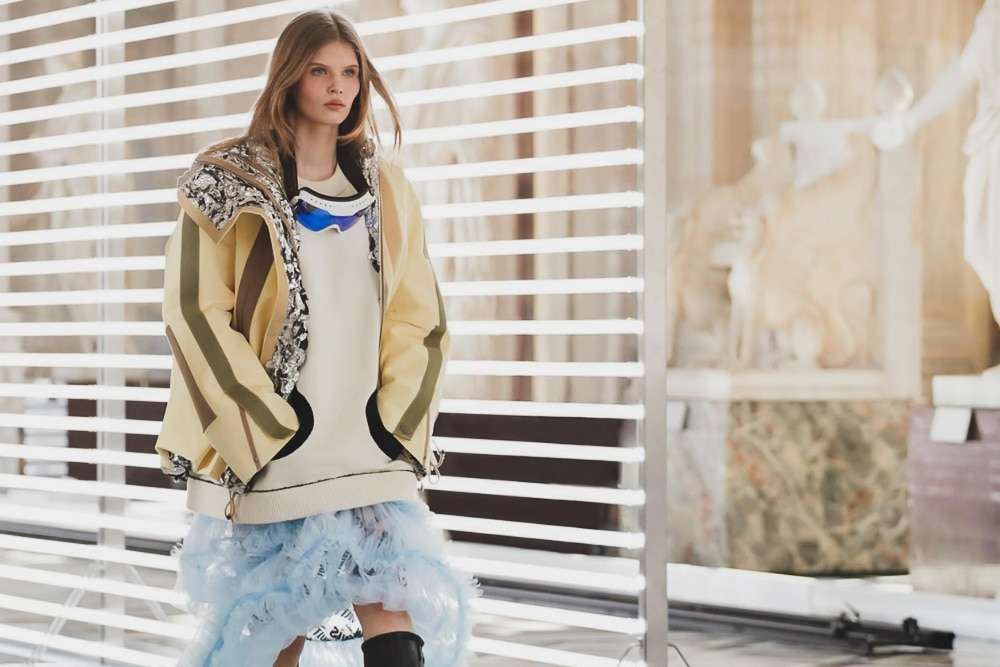
9. Louis Vuitton
Virgil Abloh, who passed away suddenly in 2021, brought more than just a new interpretation of style to Louis Vuitton. As creative director, he also reimagined how the luxury label could position its sustainability commitments. It’s had a ripple effect through the greater LVMH family of Maisons, too, with efforts like Nona Source, which makes deadstock from the labels available to young designers.
Abloh helped bring a new universal recycling logo to Louis Vuitton. He was behind the label’s first upcycled and LV Trainer Sneakers showcase the designer’s influence. Taking over for Abloh, Pharrell Williams, has leaned into slow fashion designs and commitments. “I am the consumer,” he said in a Business of Fashion interview last year. “I know what it is that I’m looking for so I design from the lenses of what it is that I’m going to need.”
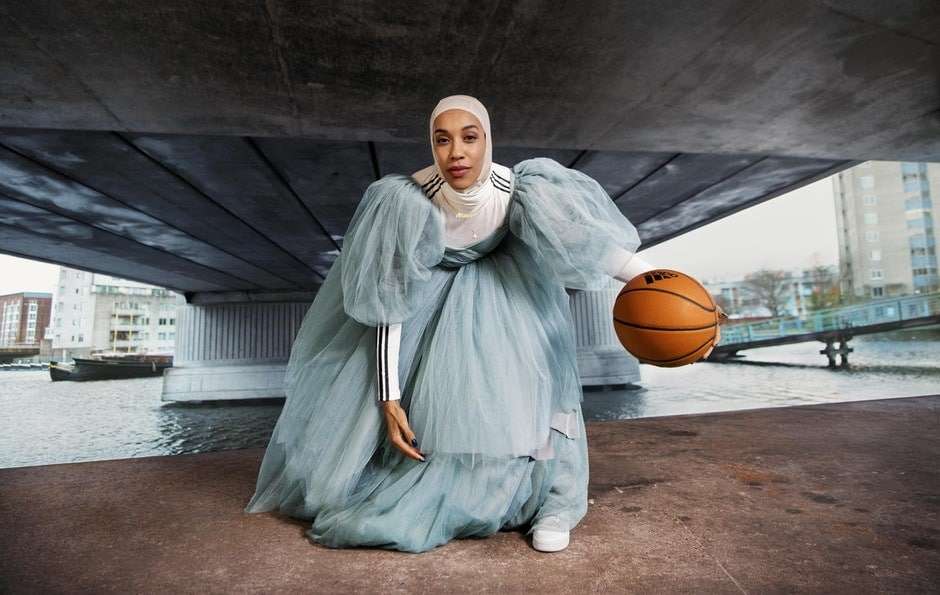
10. Adidas
Adidas was the first athleticwear label to announce ambitious climate targets. It has pledged to phase out virgin plastic by the end of this year as well as reduce its plastic use overall across its production and administrative facilities. The label has partnered with Stella McCartney on vegan leather Stan Smith sneakers and Prada using the Italian luxury label’s sustainable Re-Nylon material for tracksuits. In 2021, Adidas partnered with Kering to help tackle the global textile water waste issue.
In early 2022, Adidas became the first major label to add TrusTrace Certified Material Compliance blockchain tracing capabilities to its garments. “As part of its commitment to sustainability, Adidas has worked with TrusTrace to gain more visibility into our complete supply chain down to the materials level,” Katja Schreiber, Senior Vice President of Sustainability at Adidas, said in a statement at the time. “The information gleaned from TrusTrace Certified Material Compliance will help us to create even more transparency of our sustainability efforts.”
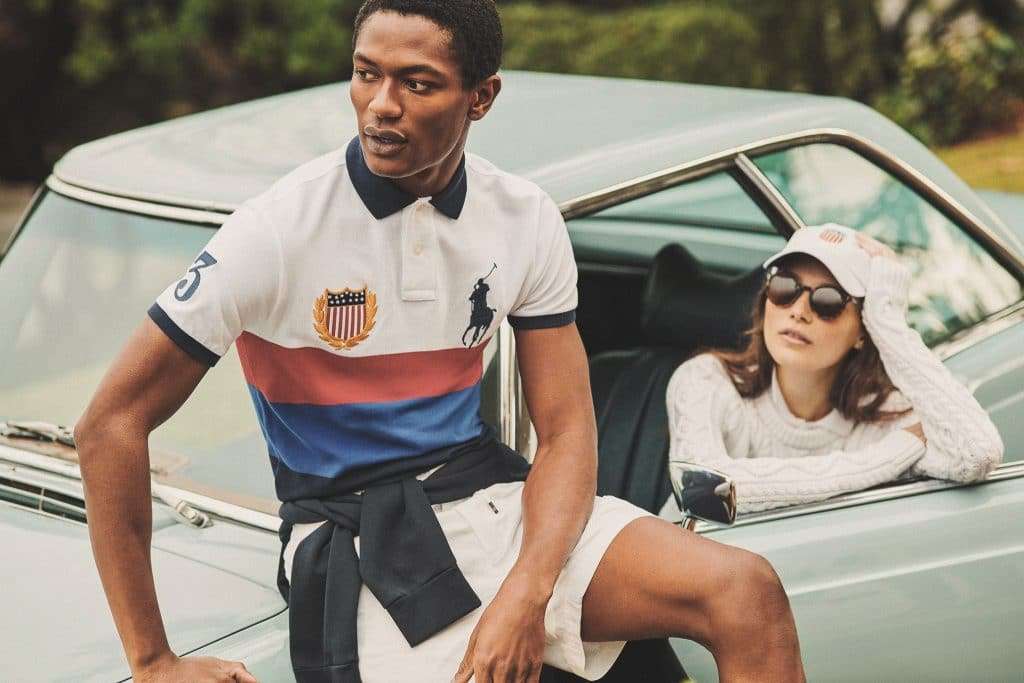
11. Ralph Lauren
Ever the symbol of classic American style, Ralph Lauren has leveraged that recognition to champion sustainability initiatives. That’s included sustainable and upcycled materials in its recent U.S. Olympic Team uniforms, an eco polo shirt, and the launch of the clean fragrance Polo Earth ahead of Earth Day 2022.
But its biggest contribution to a sustainable fashion future may just be its efforts in waterless dyeing. The label has become a leader in low- and no-water dyeing that could help to revolutionize colorized fabrics across the whole industry. In fact, in the not too distant future, you may be able to have your garments dyed in Ralph Lauren stores using this tech — picking any color combinations you like.
“Traditional color dyeing is one of the most polluting practices in our industry and as a global brand, we recognized the need to create a scalable solution,” Halide Alagöz, chief product and sustainability officer at Ralph Lauren told WWD in 2021. “Color on Demand significantly reduces the environmental impact of dyeing cotton, and as an added benefit, will enable us to better balance inventory and meet personalized consumer demands faster than ever before.”
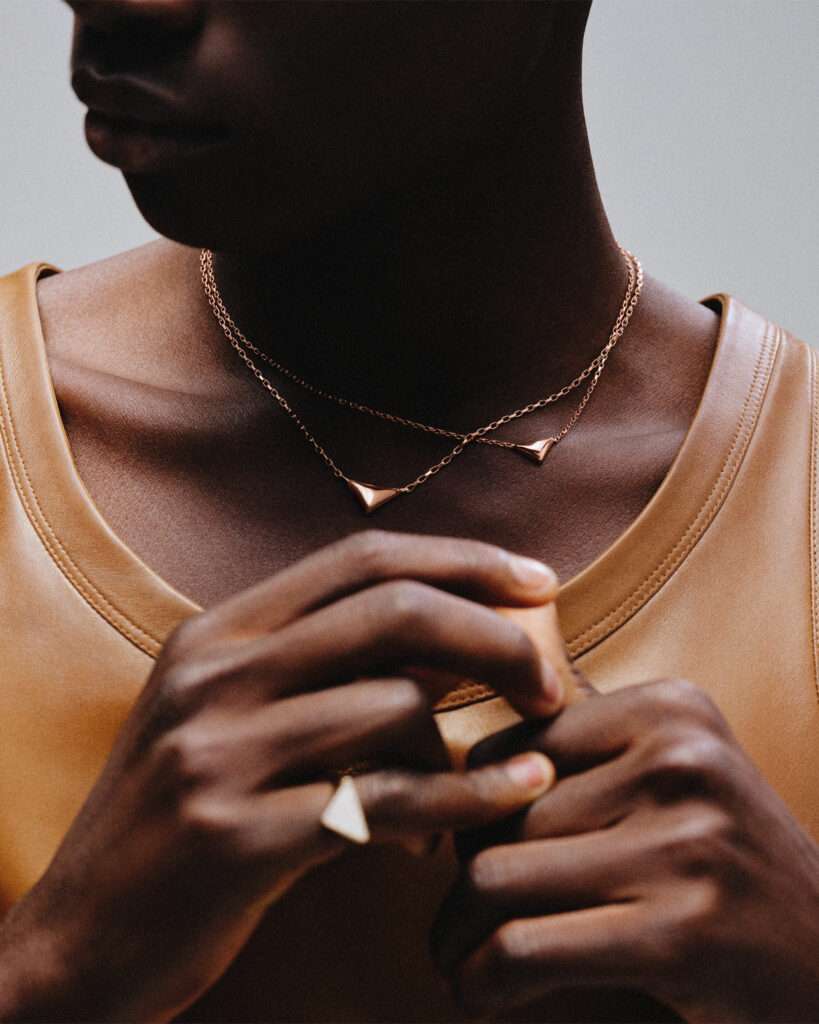
12. Prada
Prada has long been proof that sustainability and luxury can co-exist. With its shift to nylon made from ocean-bound plastic and a pledge to move away from all virgin nylon, the Italian label has been a force for good for years.
It also recently extended its ethical commitments to its jewelry line, pleding to use only upcycled gold — and, most recently, lab-grown diamonds. “Entering the laboratory-grown diamond market is part of Prada’s creative philosophy of re-imagining products through innovative materials and processes,” Lorenzo Bertelli — the company’s head of corporate social responsibility — told the Washington Post in October.
And just this month, Prada enlisted Emma Watson and Benedict Cumberbatch to front its Re-Nylon efforts, including its give-back scheme that supports ocean conservation and education efforts.
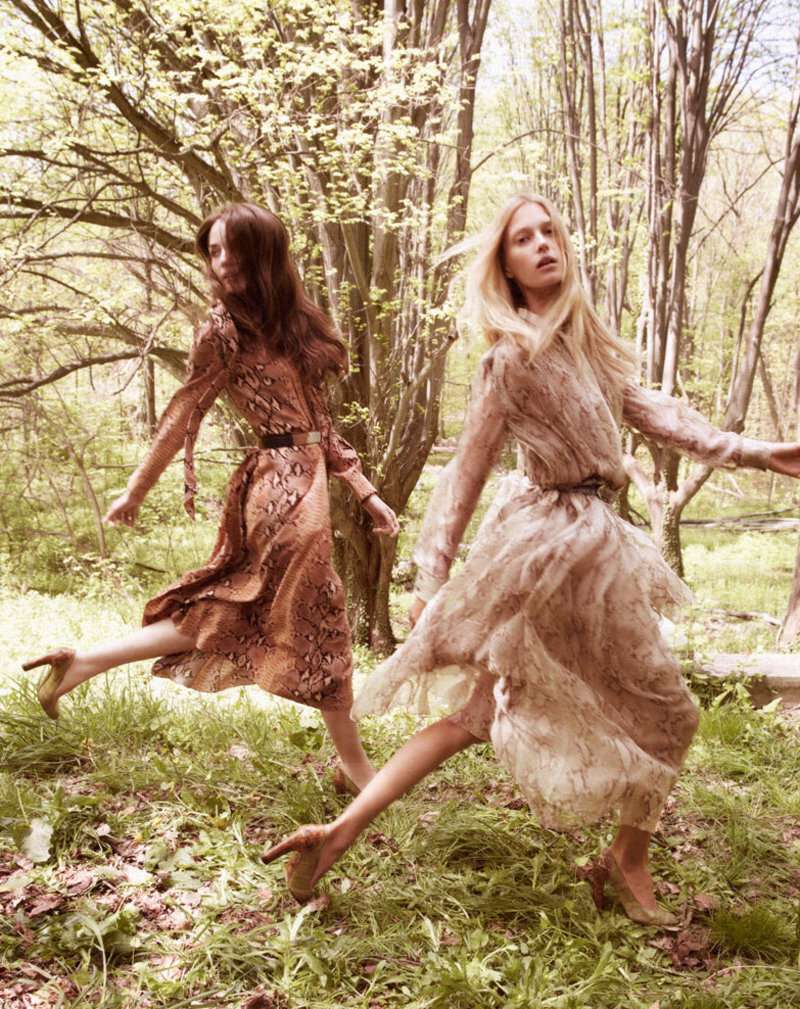
13. Chloé
The first luxury fashion label to earn Certified B Corp status back in 2021, Chloé’s sustainability shift can be credited in large part to former creative director Gabriela Hearst. She put efforts in motion that are sure to last. “We upgraded our operations, governance, and policies in a way that allows us to operate in a more environmentally and socially responsible manner,” Riccardo Bellini, CEO of Chloé, told WWD at the time.
In 2022, the French label announced the traceability project, Chloé Vertical. Like Adidas’ blockchain, it includes digital IDs in garments, bags, and shoes, so that consumers can trace the product’s manufacturing details including materials, repairs, and even resale options.
Related on Ethos:

